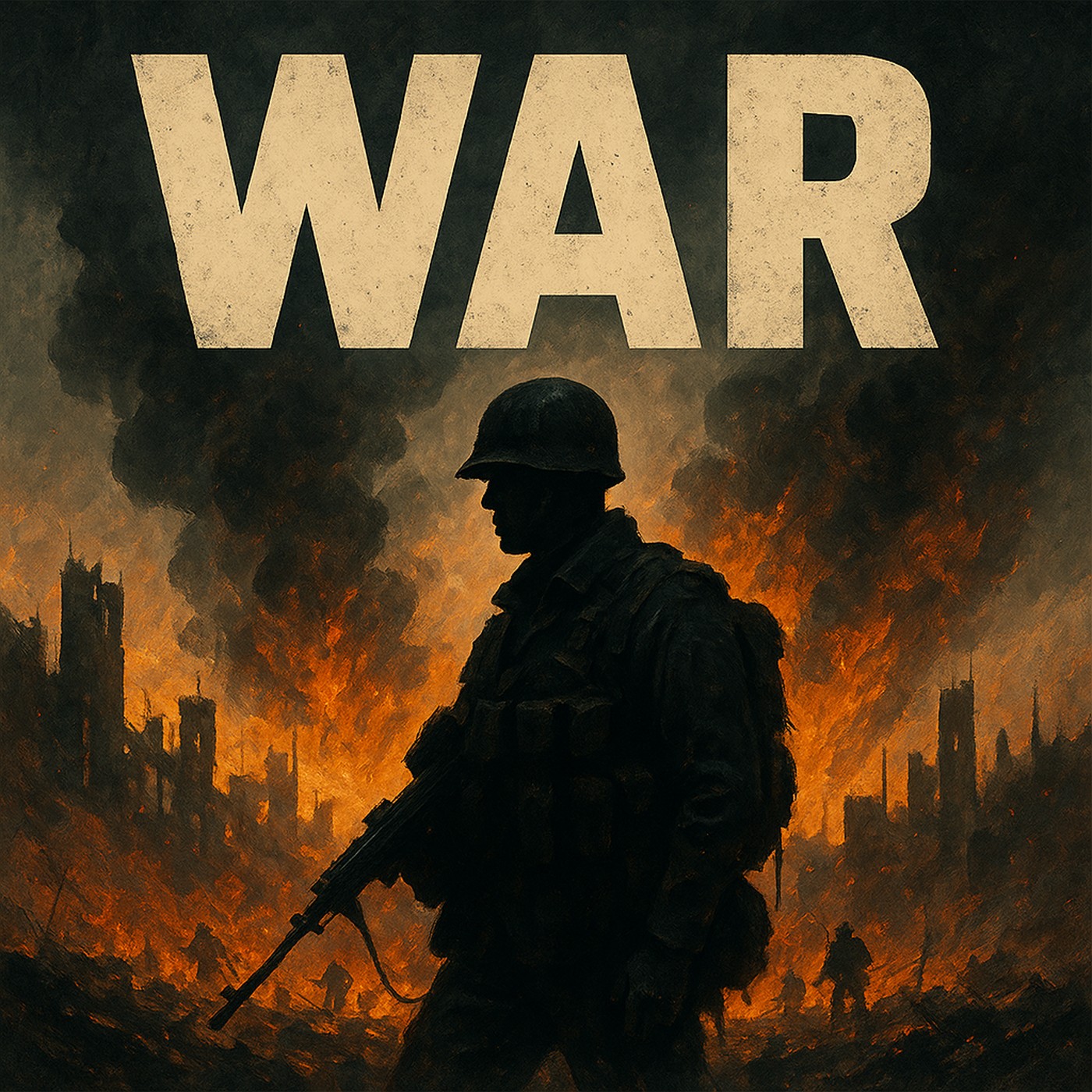Episodes
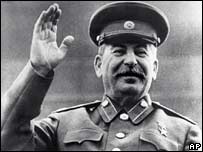
Thursday Apr 26, 2018
Episode 16 - The Battle of Stalingrad
Thursday Apr 26, 2018
Thursday Apr 26, 2018
A disastrous offensive launched by the Red Army in May, 1942 around Kharkov ended in a rout that paved the way for a renewed German offensive deep into southern Russia and the Ukraine beginning on June 23, 1942. The goal was to break Soviet resistance by capturing the oilfields of the Caucasus and the River Volga at Stalingrad. The Red Army was once again put on the defensive and soon their backs were against the Volga River, desperately trying to hang on in the face of an implacable and ruthless enemy bent on the annhilation of the Slavic people. This battle, fought in subhuman conditions between August 1942 and January 1943 cost nearly 2 million casualties and unspeakable suffering for those who fought and died there. This is the story of the battle many consider the turning point of World War II in Europe.
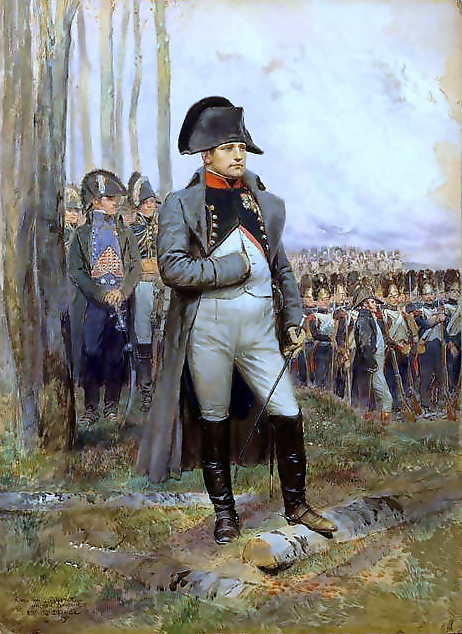
Sunday Jan 21, 2018
Leipzig 1813 -The Battle of the Nations
Sunday Jan 21, 2018
Sunday Jan 21, 2018
The fate of Europe hung in the balance at Leipzig in October, 1813. His invasion of Russia had ended in failure in December 1812, and Napoleon Bonaparte was now beset by defections of allied nations who had marched with him and pursued by a Russian army entering Germany intent on revenge. Determined to maintain his dominance of continental Europe, Napoleon quickly assembled a new army - a quarter million strong - to defend his Empire and his crown. Encouraged by the destruction of much of the French army in the Russian campaign, first Sweden, then Prussia and finally Austria declared war and marshalled their armies to confront Napoleon in the small kingdom of Saxony. The mystique of the man the Duke of Wellington once said was worth 40,000 men on a battlefield was still alive as he routed Coalition armies at Lutzen, Bautzen and again at Dresden. Numerical superiority seemed irrelevant when Napoleon was on the field, but his genius would be put to the test at Leipzig. In four days that shook the world, the unthinkable would finally happen.
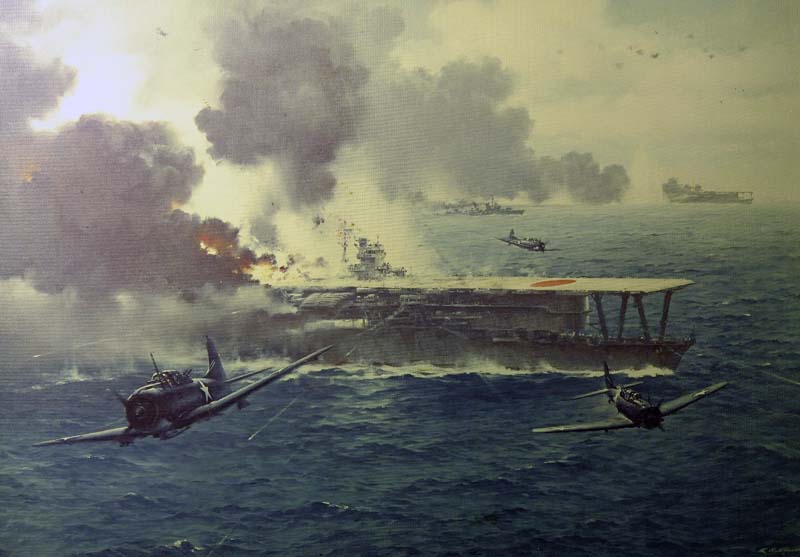
Sunday Sep 10, 2017
Episode 14 - Midway
Sunday Sep 10, 2017
Sunday Sep 10, 2017
The United States was caught unprepared for a surprise Japanese air attack on December 7, 1941 and suffered its worst naval defeat in history. With successive invasions and defeats in Guam and the Philippines, including the surrender of its remaining army at Corregidor, the United States was losing the war in the Pacificto Japan in June, 1942. Yet there remained a flicker of hope, because the American aircraft carriers had not been caught at Pearl Harbor and could still roam the seas, threatening the Japanese home islands and further conquests abroad. Japanese supreme commander Yamamoto was determined to ambush the four American carriers and end the threat once and for all. Newly appointed Pacific Fleet commander Chester Nimitz took over a demoralized fleet at Pearl Harbor knowing he could not allow the loss of his carriers or his island base in Hawaii. When he learned of an impending attack on Midway Island, he risked everything in a desperate gamble to outfox the Japanese fleet and ambush their carriers. This is the story of a miraculous and pivotal victory at sea that ranks with the greatest in history.
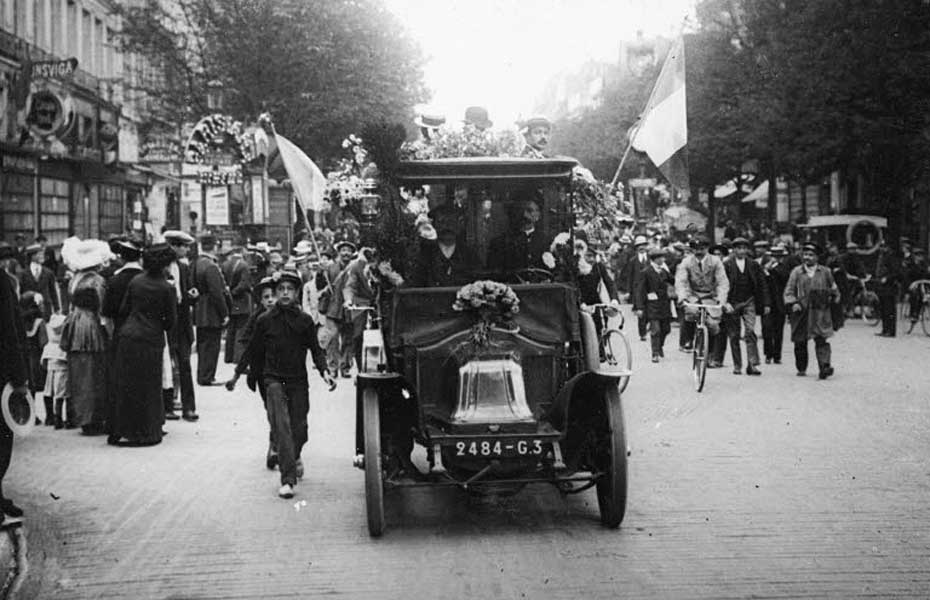
Saturday Feb 04, 2017
Episode 13 - The Battle of the Marne - 1914
Saturday Feb 04, 2017
Saturday Feb 04, 2017
On August 27, 1914, a bare three weeks into the First World War, the hopes and dreams of the French to liberate their lost provinces of Alsace and Lorraine by beating the German Army were in ashes. Hard and costly defeats had been inflicted on their army by a seemingly relentless grey tide of German soldiers backed by heavy artillery, the likes of which the world had never seen. Worse still, an incoming tide of a million German soldiers cutting through Belgium seemed unstoppable and that Paris would fall in a matter of a week or so. This is the story of how the French army rose from its knees and managed to inflict a stunning and decisive defeat on the German invaders that saved their country from disaster. This is the story of the Miracle of the Marne.

Monday Aug 22, 2016
Episode 12 - The Battle of Solferino - 1859
Monday Aug 22, 2016
Monday Aug 22, 2016
This pivotal battle of the four Italian Wars of Independence in the mid-19th century was, in its day, the greatest European battle fought since the end of the Napoleonic Wars in 1815. The appalling carnage that resulted from three armies desperate struggle in suffocating summer heat in northern Italy shocked the civilized world. Swiss businessman Henri Dunant, who visited the battlefield the day after, was so moved by the pitiful treatment of the wounded and dying, that he established the International Red Cross, which survives to this day. It also led to the first Geneva Convention that protected ambulances and medical personnel from enemy attack during and after a battle. The outcome of the battle would be instrumental in the establishment of a free, united Italy in place of what had been a scattering of independent or foreign-dominated, small states on the peninsula. The story of this monumental battle is told in this episode which the author visited himself in the summer of 2016.

Sunday Feb 28, 2016
Episode 3 - The Battle of Koniggratz - 1866
Sunday Feb 28, 2016
Sunday Feb 28, 2016
The Battle of Koniggratz, fought on July 3, 1866, was the largest military battle on the continent of Europe between the end of the Napoleonic Wars in 1815 and the Battle of the Somme during the First World War in 1914. Another improbable battle in this series, it seemed at the outset of the war that Prussia would be slowly crushed by the vast resources of Austria and the other German states, nearly all of whom allied with Austria. When Austria's imperial army defeated Prussia's only ally, the kingdom of Italy, at Custoza on June 24, Prussia's doom seemed to be only a matter of time. This is the story of the brilliance of Prussia's supreme commander, Helmuth von Moltke, and how in a matter of six weeks, he humbled the Austrians on the fields of Moravia in a lightening campaign. Austria's defeat and consequent expulsion from Germany irrevocably altered the European balance of power and within five years, the German Empire was born under Prussian domination with its capital in Berlin.
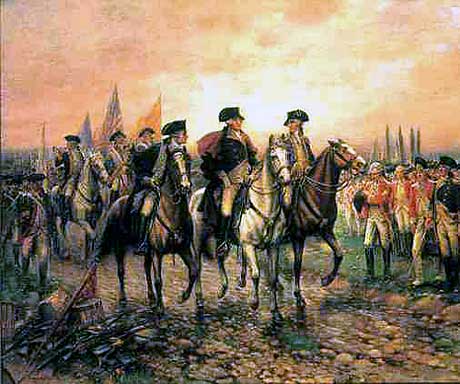
Sunday Feb 28, 2016
Episode 11 - Yorktown and the Battle of the Capes
Sunday Feb 28, 2016
Sunday Feb 28, 2016
In 1781, the American Revolutionary War had been going on for over six years with more defeats for George Washington and the cause of American independence than victories. The British army under the command of Sir Henry Clinton, based in New York, together with a large fleet commanded by Admiral Thomas Graves, appeared impregnable and invincible. The British could strike anywhere, anytime along the extended American coastline bringing overwhelming military power to bear. In the last year, Clinton had again demonstrated this power as his army swooped in from the sea, annihilated a large American garrison at Charleston, South Carolina, and then returned to New York leaving a large occupying force there under the command of Charles, Lord Cornwallis. As another winter faded into Spring, Cornwallis was moving north from the Carolinas to establish another base midway between Charleston and New York in Virginia, scattering smaller American forces under Lafayette as he went. Yet new hope sprang up with the arrival of a French expeditionary force of 6,000 men under the command of the Compte de Rochambeau in Rhode Island coupled with the possibility of naval support from the French admiral de Grasse in the Caribbean. This is the story of a remarkable combination and coordination of sea and land forces that Washington managed patiently and brilliantly, decisively defeating a major part of the British army which finally compelled Britain to grant independence to the new American Republic, changing the course of history
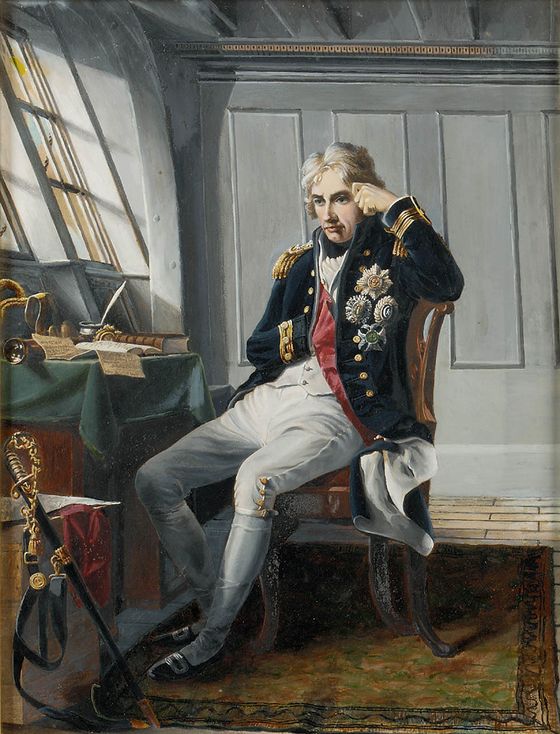
Sunday Nov 15, 2015
Episode 10 - Trafalgar
Sunday Nov 15, 2015
Sunday Nov 15, 2015
In October 1805, Britain had been almost continuously at war with Napoleonic France and under the constant menace of invasion across the narrow English Channel at Boulogne. There stood nearly a quarter million men under the personal command of Napoleon himself. The Armee d'Angleterre was the finest army on the continent of Europe and stood ready to invade and humble the "nation of shopkeepers", as the French Emperor contemptuously called his most implacable enemy. Standing between him and the beaches of Kent was the British navy. Napoleon had conceived a clever plan to unite the French and Spanish fleets and temporarily attain naval superiority in the Channel, long enough to get his army across. If he succeeded, he later claimed, "it would have been all over with England." This is the story of England's most famous naval commander of all time and how he managed to utterly annihilate the combined Franco-Spanish fleet off the coast of Spain in about five hours, losing his own life in the battle. Upon the outcome of this one battle on the high seas the fate of three empires were were sealed and the world would never be the same again.
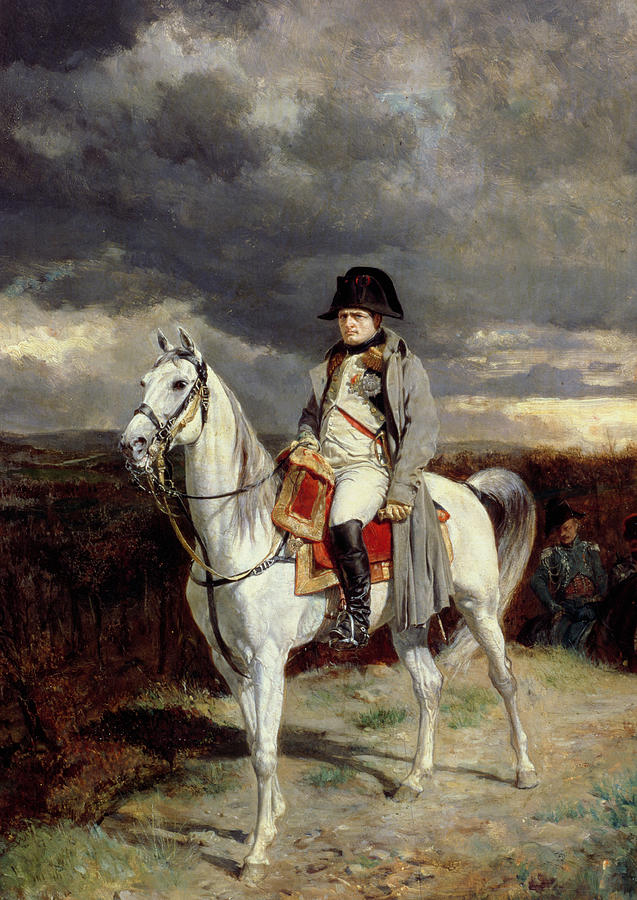
Wednesday Oct 07, 2015
Episode 9 - The Battle of Austerlitz
Wednesday Oct 07, 2015
Wednesday Oct 07, 2015

Saturday Sep 05, 2015
Episode 8 - The Six Day War - 1967
Saturday Sep 05, 2015
Saturday Sep 05, 2015
The State of Israel faced mortal danger in June, 1967. Surrounded on three sides by hostile Arab states, armed to the teeth with the latest Soviet equipment, on paper, the odds of Israel's survival did not look good. Yet in six days that stunned the world, Israel not only survived, but routed three armies and tripled the size of its territory at the expense of Egypt, Syria and Jordan. The impact of this brief campaign is still being felt today. This episode describes how this incredible military achievement was planned and executed using every art of war by Israel's brilliant commanders, Moshe Dayan, Yitzak Rabin, Mordechai Hod and their generals. Conversely, learn how the seeds of destruction were sown in the Arab alliance and within the political/military institutions of Egypt and Syria before the war ever began.

